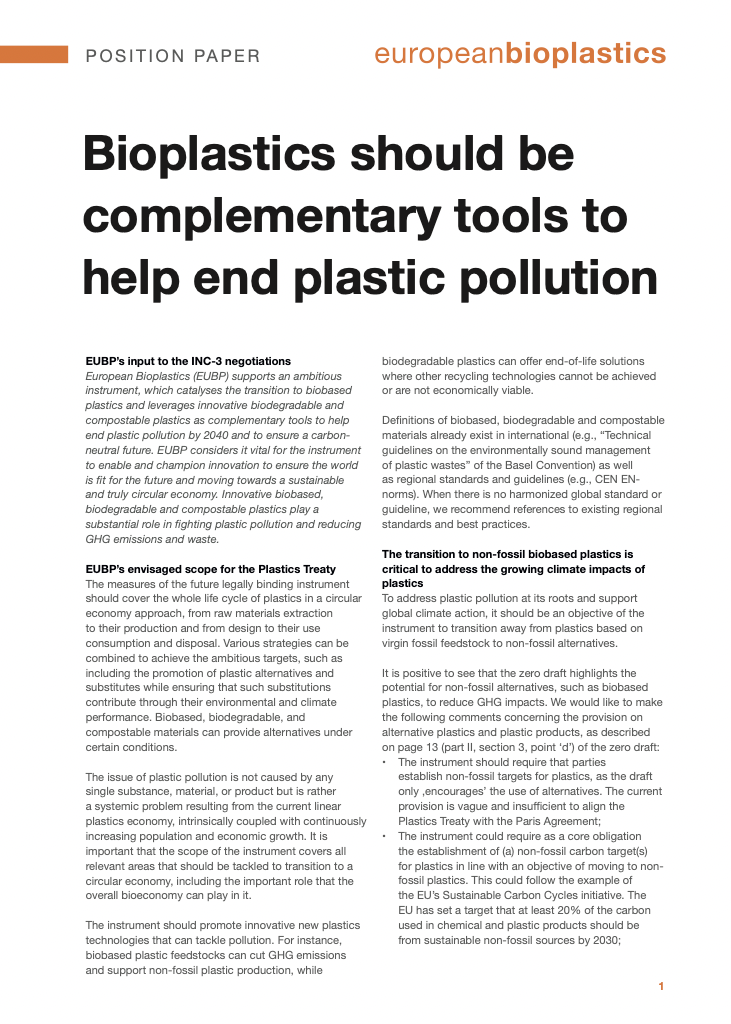European Bioplastics (EUBP) supports an ambitious instrument, which catalyses the transition to biobased plastics and leverages innovative biodegradable and compostable plastics as complementary tools to help end plastic pollution by 2040 and to ensure a carbon- neutral future. EUBP considers it vital for the instrument to enable and champion innovation to ensure the world is fit for the future and moving towards a sustainable and truly circular economy. Innovative biobased, biodegradable and compostable plastics play a substantial role in fighting plastic pollution and reducing GHG emissions and waste.
EUBP’s envisaged scope for the Plastics Treaty
The measures of the future legally binding instrument should cover the whole life cycle of plastics in a circular economy approach, from raw materials extraction to their production and from design to their use consumption and disposal. Various strategies can be combined to achieve the ambitious targets, such as including the promotion of plastic alternatives and substitutes while ensuring that such substitutions contribute through their environmental and climate performance. Biobased, biodegradable, and compostable materials can provide alternatives under certain conditions.
The issue of plastic pollution is not caused by any single substance, material, or product but is rather a systemic problem resulting from the current linear plastics economy, intrinsically coupled with continuously increasing population and economic growth. It is important that the scope of the instrument covers all relevant areas that should be tackled to transition to a circular economy, including the important role that the overall bioeconomy can play in it.
The instrument should promote innovative new plastics technologies that can tackle pollution. For instance, biobased plastic feedstocks can cut GHG emissions and support non-fossil plastic production, while biodegradable plastics can offer end-of-life solutions where other recycling technologies cannot be achieved or are not economically viable.
Definitions of biobased, biodegradable and compostable materials already exist in international (e.g., “Technical guidelines on the environmentally sound management of plastic wastes” of the Basel Convention) as well as regional standards and guidelines (e.g., CEN EN- norms). When there is no harmonized global standard or guideline, we recommend references to existing regional standards and best practices.
